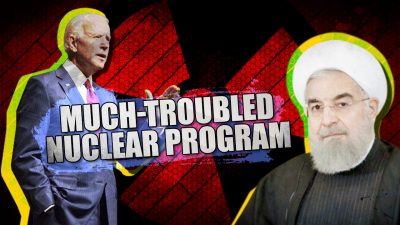Video: Iran’s Much-troubled Nuclear Program. Cyber-Attack against Natanz Facility

All Global Research articles can be read in 51 languages by activating the “Translate Website” drop down menu on the top banner of our home page (Desktop version).
***
Iran’s Natanz nuclear facility is an incredibly important piece of infrastructure for Tehran’s interests.
One of its most important roles is that of providing leverage when the Islamic Republic is on the Nuclear Deal negotiating table.
Natanz was largely built underground to withstand enemy airstrikes.
Back in 2002, when it was established it became a focal point of Western fears regarding the potential of Tehran acquiring nuclear weapons.
Despite many accusations, mostly from Israel, Iran maintains that it develops its enriched uranium for peaceful purposes.
The fact that it also applies pressure on the other signatories on the Joint Comprehensive Plan of Action (known as the Iranian Nuclear Deal) is an added, and needed bonus.
The Natanz facility was subject to an alleged cyber-attack on April 11th.
This led to a large blackout, and was considered a significant strike against Tehran.
Iran’s nuclear program spokesman, Ali Akbar Salehi, confirmed that the electrical disruption at Natanz was a deliberate act of sabotage, calling it “nuclear terrorism.”
Israel’s officials refused to provide any comment, and disregarded the incident.
Israeli media, however, continue citing anonymous sources, claiming that it had been a Mossad operation, and that it had achieved great success.
The timing of the attack was also said to not be incidental, coming the day after Iran celebrated its National Nuclear Technology Day.
Iran itself didn’t blame Israel, but in statements, officials said that the attack came from those who oppose Tehran’s negotiations with the West.
The United States and the Islamic Republic have been involved in indirect negotiations in rescuing the Nuclear Deal.
Anything conclusive is still far off.
For any real progress to occur, Iran requires from the Biden Administration to lift all sanctions against it, related to the Nuclear Deal or otherwise.
The result is a standstill, in which Iran refuses to accept the US back into the deal with significant concessions, and Washington not in a hurry to fulfill any demands.
Tehran then continues incrementing various reductions of its commitments to the Iran Nuclear Deal, in loosely permitted margins.
In this way, it not only attempts to gain leverage over the US, but also tries to push the EU signatories into entering into discussions with Washington to salvage the deal.
The United States has admitted, without specifying clearly, that some sanctions that are inconsistent with the Nuclear Deal and could be lifted.
Iran likely did not appreciate such a concession.
Tehran, still, shouldn’t hold its breath, since the enemies of any such progress are many, and it is not put out of the question that if Israel was actually behind the incident in Natanz, that some from Washington’s fold were also present in the plot.
Still, Israel and also many in the US oppose any form of normalization between Tehran and Washington, and the continuous MSM reports that attempt to stir the pot stand testament to that.
*
Note to readers: please click the share buttons above or below. Forward this article to your email lists. Crosspost on your blog site, internet forums. etc.
SUPPORT SOUTHFRONT:
PayPal: [email protected], http://southfront.org/donate/ or via: https://www.patreon.com/southfront

